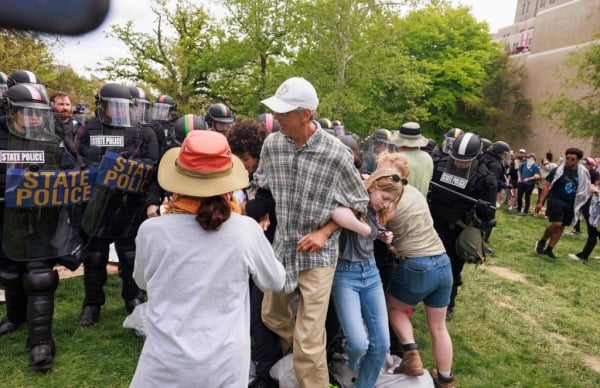The Board of Trustees at Indiana University has recently come under fire for their decision to double down on protest restrictions on campus. In a move that has sparked controversy and outrage among students and faculty members, the board voted to enforce stricter guidelines for demonstrations and protests on campus.
The new restrictions, which were announced last week, prohibit any form of protest or demonstration that disrupts the normal operations of the university. This includes blocking access to buildings, disrupting academic activities, and engaging in violent or destructive behavior. In addition, the board voted to limit the times and locations where protests can take place on campus.
The decision to tighten restrictions on protests comes after a series of controversial demonstrations on campus in recent months. In one incident, a group of students blocked access to a university building in protest of a controversial speaker invited to campus. The protests escalated into confrontations with police, leading to several arrests and injuries.
The board’s decision to crack down on protests has sparked a backlash from students and faculty members who see it as an infringement on their right to free speech and peaceful assembly. Many have accused the board of prioritizing the university’s image and reputation over the rights of its community members.
In a statement, the board defended their decision, citing the need to maintain a safe and orderly campus environment for all students, faculty, and staff. They emphasized that while they support the right to free speech and peaceful protest, they cannot condone behavior that disrupts the university’s operations or jeopardizes the safety of its community members.
Despite the board’s justification, many are pushing back against the new restrictions, arguing that they are a violation of students’ First Amendment rights. Some have called for the board to reconsider their decision and engage in dialogue with the campus community to address concerns and find a more balanced approach to managing protests on campus.
As the controversy continues to unfold, it remains to be seen how the board’s decision will impact the climate of free speech and activism at Indiana University. With tensions running high and emotions running strong, many are watching closely to see how this situation will be resolved and what it will mean for the future of protest on campus.



